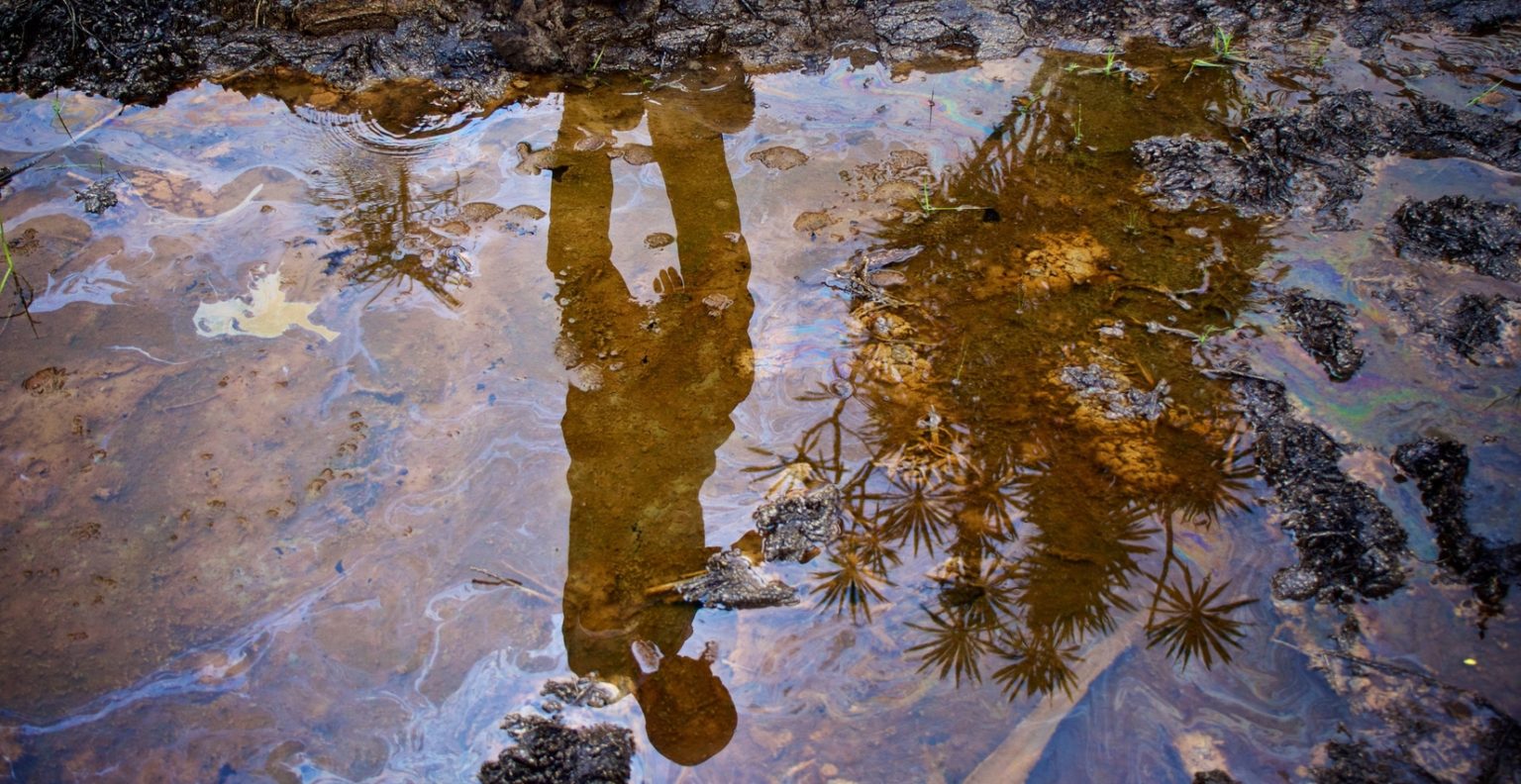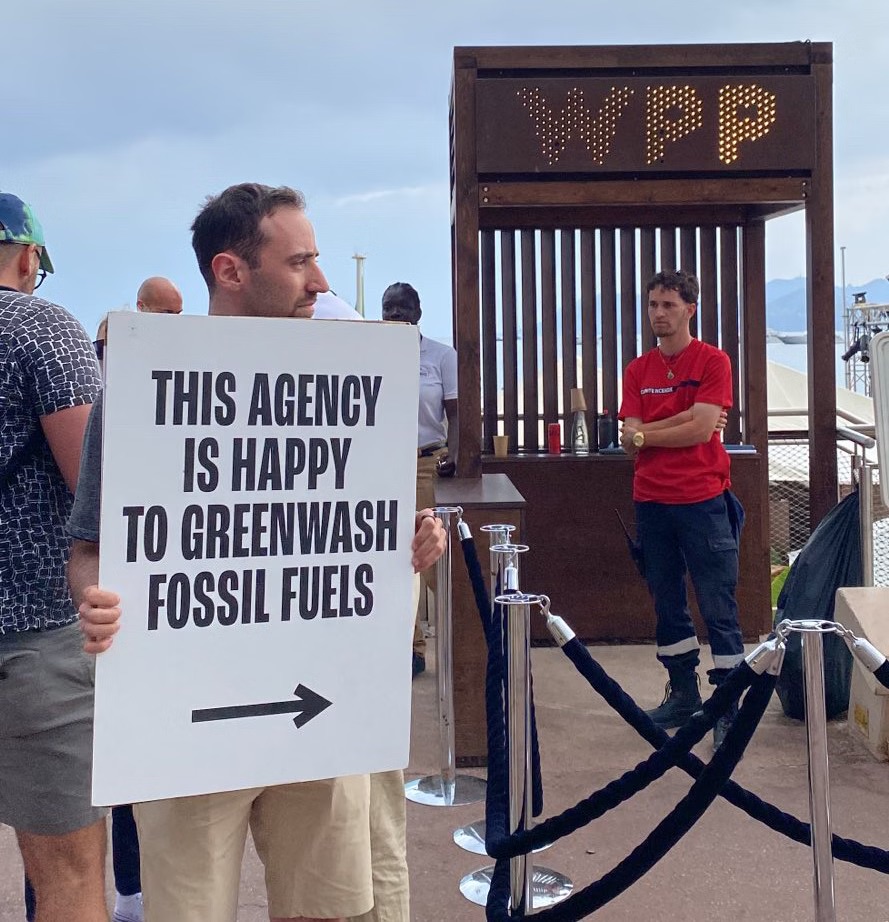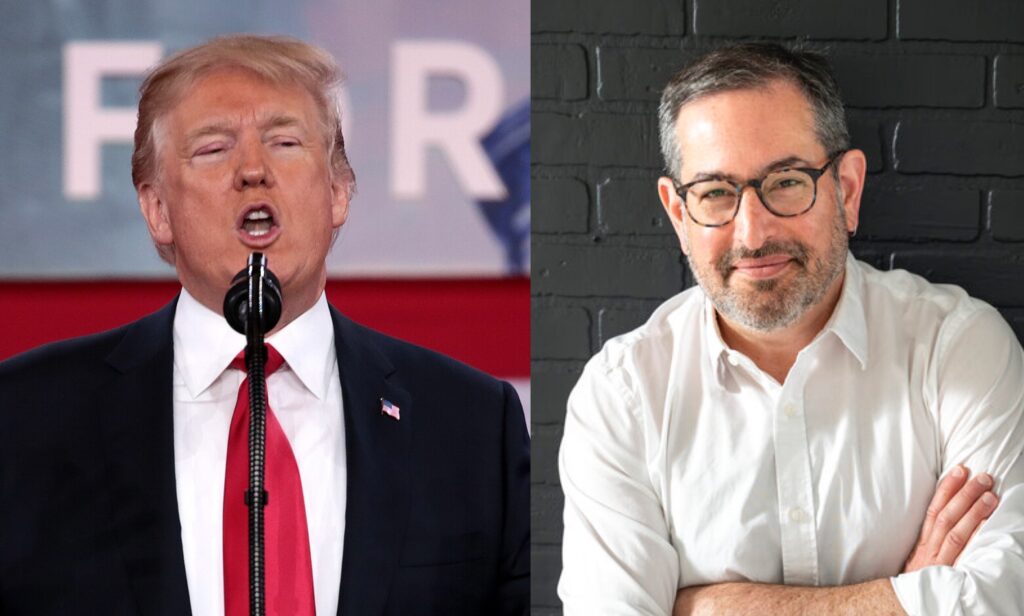Ministers from the UK’s Foreign Office (FCO) agreed to lobby the Nigerian Government to protect Shell’s oil interests in the Niger Delta despite the company’s poor human rights and environmental record in the region, official documents seen by DeSmog UK reveal.
Briefings and minutes from a series of meetings between government ministers and the oil giant between May 2013 and July 2015, attained through a freedom of information request, show a cosy relationship between Shell and the FCO, with ministers pledging the government’s “ongoing support and commitment” to Shell’s controversial activities.
The documents show Shell requested help to attain tougher regulations on oil theft, a weaker taxation regime favourable to its gas and offshore investments, and for the UK government to use its influence to ensure a peaceful transition during Nigeria’s general election.
In each case, the FCO was happy to oblige.
‘Bunkering’
Oil theft – also known as bunkering – is a long-standing issue in the petroleum-rich Niger Delta. The documents, recently published on the UK government’s website, show the willingness of the FCO to address the issue on Shell’s behalf.
In 2013, a Chatham House report called for international cooperation to tackle bunkering and estimated 100,000 barrels of oil were stolen from Nigeria each day.
This is partly because Shell’s operations in the region have ravaged the delta’s environment, harming the livelihoods of resident fishing and farming.
In 2011, the UN Environment Programme (UNEP) published a damning report anticipating it would take up to 30 years to clean the Niger Delta from oil spills, caused by theft and operational failures.
The report, which focuses on the devastating impact of the spill in the Ogoniland regions, finds oil production in the area led to the contamination of air and ground and drinking water, and created a “serious threat to public health”.
UNEP also found Shell Nigeria’s operations in the area “still do not meet the local regulatory requirements or international best practices”.
There is no doubt the FCO was well-aware of these issues, which gained international attention following two massive oil spills in the Niger Delta in 2008 and 2009, for which Shell accepted liability. In 2015, it agreed to pay £55m to the fishing Bodo community for losses caused by the spills.
And yet minutes of meetings in May 2013 and January 2014 with senior Shell representatives show the FCO demonstrated little concern for the environmental disasters and human rights abuses in the region.
The documents show the FCO is concerned first and foremost with Shell’s economic interests in the area.
That’s because, as stressed in an FCO briefing note, the company employed 6,500 people in the UK and 2,000 British nationals overseas in 2013. The document also highlighted Shell’s $15.2bn contribution to the UK treasury that same year.
Briefing notes for Mark Simmonds, under-secretary of state for the FCO between 2012 and 2014, make it clear “Shell has been lobbying Her Majesty’s Government at senior levels to take action” over a period of “several months”.
As a result, in May 2013, the FCO gave an audience to Shell’s UK Chairman Ed Daniels to discuss “the possibility of synergies between the FCO and Shell in working on solutions to problems there [Niger Delta].”
The proposal for collaboration went even further, when Anglo-Dutch company Shell suggested the UK government liaise with the Netherlands on the issue.
The FCO seemed satisfied with the meeting with Daniels and committed to “continue to put political pressure on them [Nigerian Government] to tackle the issue [of bunkering] as a priority”. It also noted “it would be useful to gain a better understanding of what assistance they [Shell] believe the UK can best provide”.
Shell and the FCO’s priorities are far removed from those of the communities living in the Niger Delta, which continue to demand oil companies clean-up the spills.
Five years after the UNEP report, Amnesty International said little had changed. Oil was still polluting the delta’s creeks and, following Amnesty International inspections, it published a report demonstrating most sites Shell claims to have cleaned-up are still overflowing with oil.
Joe Westby of Amnesty International told DeSmog UK:
“There is a huge failure on the part of the Nigerian government to investigate oil theft and regulate the devastating environmental impacts of oil companies.
“For the UK government to be supporting the Nigerian Government in tackling oil theft is not a bad thing. But it is worrying that the UK Government is apparently focused on supporting Shell’s interests without challenging Shell to clean-up oil spills properly and improve its aging pipelines.”
Westby continued: “Oil theft and sabotage are real problems in the Niger Delta, but all too often Shell and other oil companies use them as a public relations tool to distract from their own operational failures.”
Sarah Shoraka, of oil-watchdog Platform, told DeSmog UK: “The whole narrative about oil theft is Shell’s narrative. It’s a constructed narrative. They blame communities and say the spills are not their fault but they have a vested interest in saying that because they want to avoid paying compensation.”
Having met with both FCO staff and communities affected by the spills in the Niger Delta, she added: “The FCO is well aware of Shell’s refusal to clean up its oil pollution leading to widespread sickness, death and poverty in the Niger Delta. These documents show the UK Government chooses to stand up for rich oil companies instead of ordinary people.”
A Shell spokesperson told DeSmog UK the company’s meetings with the UK government were justified on security grounds:
“In recent years, militant violence and sabotage have contributed to a decline in oil and gas production, delaying projects, loss of government revenue, and causing environmental pollution. Security in the Niger Delta remains a major concern with persisting incidents of criminality, threats from militant elements, violent host community agitations and most recently, offshore piracy.”.
Petroleum Industry Bill
Nigeria’s government has been making some progress on trying to address the issues of bunkering and corruption in the oil industry. However, the documents show that Shell lobbied the FCO to ensure any new regulations protected its business interests.
And the FCO agreed.
First suggested in 2007, the Petroleum Industry Bill aims to better regulate the oil sector. Successive administrations have tried in vain to pass the bill and 10 years on, a watered down version of the original text is still stuck in legislative corridors.
The bill is due to bring transparency to the sector and lay out a fiscal policy for oil companies’ investments.
Oil companies, including Shell, have held a prime seat at the negotiation table and held back the draft law for years arguing uncompetitive tax terms would make investments in the country “unviable”.
Under former Nigerian President Goodluck Jonathan, a version of the bill expected oil companies to pay 50 percent profit tax for onshore exploitation and a 25 percent levy for deepwater operations. At the time, Shell was considering important investments in gas and offshore oil, and the bill appeared as a financial burden.
The company used its access to the negotiating powers of the FCO to demand the UK government lobby the Nigerian authorities to ensure the bill would be favourable to the company’s planned offshore and gas projects.
And the FCO agreed to do just that.
Minutes of a meeting held in May 2013 read:
“Our High Commission … will continue to seek a bill which encourages transparency alongside competitive fiscals to attract investment.”
Shell did not deny its involvement in Nigeria’s legislative process.
The company said it will “contribute to help ensure industry reform is effective and practical” to “create a conducive business environment that will bring more investment in the country’s oil and gas sector and ensure greater economic diversification”.
Nigerian Election
The meetings between Shell and the FCO took place at a very delicate time in Nigeria, corresponding with the run-up to a fiercely contested general election.
The 2015 presidential election saw Jonathan, once a governor in the Niger Delta, go head-to-head with Muhammadu Buhari, a former major general in the Nigerian Army.
By January, there were growing security concerns in the north-east of the country, where the militant Islamist group Boko Haram had gained territory. The electoral commission postponed the election by six weeks to March 28 by fear of violence.
Shell became concerned with the election process when a series of violent episodes seized the city of Port Harcourt, the capital of the Rivers State and the headquarters of Shell’s operations in the Niger Delta, in February.
With the price of oil then plummeting, the prospect of violence was a major threat to the company’s operations and a security concern to its staff living in a part of Port Harcourt known as the Shell Residential Area.
The Niger Delta’s history of militancy, which kicked off in the 1990s when communities opposed oil exploitation in the area, left Shell with bitter memories. It led the company to settle $15.5millions in court over allegations it collaborated in the execution of community leader Ken Saro-Wiwa and eight other activists from the Ogoni tribe.
In a meeting in February 2015, the FCO reassured Shell that the UK Government had used its “leverage influence” to make “firm” representations to the Nigerian Government over the need for peaceful and timely elections.
This was unsurprisingly welcomed by the oil giant.
Yet, with the polls pointing to Muhammadu Buhari as favourite, a note from the FCO reminded the UK minister Baroness Anelay:
“Shell needs reassurance UK will continue to put pressure on new Nigerian government on issues which affect its operations.”
And reassurance it was given. At the end of the meeting, Baroness Anelay pledged the government’s “ongoing support and commitment” to Shell’s senior advisor Rob Donnelly and the company’s Deputy Head of UK Government Relations.
Shell in the UK Courts
The politics of Shell’s activities in Nigeria continue to be contentious and could spill over into the UK courts later this year.
Last March, legal firm Leigh Day filed a case in the UK on behalf of more than 40,000 Nigerians with two claims against Royal Dutch Shell (RDS) and its Nigerian subsidiary, Shell Petroleum Development Company of Nigeria Ltd (SPDC).
The case brought to the courts by the Niger Delta’s Bille and Ogale communities focuses on the extensive environmental damage caused by oil pollution over several years.
A judge ruling over whether the case can be heard in London’s High Court is expected on January 26.
“It is a very serious situation out there,” Daniel Leader partner at Leigh Day told DeSmog UK.
“I think the British Government has a responsibility to make sure that Shell, which is a major British company, is operating in a way that is not devastating the environment and hundreds of communities around the Niger Delta,” he said.
“The issue of bunkering is a real problem but what is striking is that Shell does not have in place the basic technology to identify the leaking pipe and isolate it to shut it down.
“The result is that the damage that occurs is very severe whereas if there is a leak in this country for example, they shut the pipe and the flow of the leak is quickly stopped – but they don’t have this capacity in Nigeria.
“Instead they rely on fisherman and men contracted to fix the pipes that are entirely unreliable. Meanwhile, Shell staff cannot be around these communities because they are so unpopular.”
Shell and its Nigerian subsidiary argue there is no jurisdiction to hold the case in the UK, where parent company Royal Dutch Shell is based. They argue the claims should be heard in Nigeria.
Leader and his team anticipate they will have to appeal the decision. So far, the UK Government has shown no interest in the case.
Cosy Relationship
The documents show that the FCO was more than happy to help Shell’s interests in Nigeria, and consistently failed to challenge its human rights and environmental record in the country.
Sarah Shoraka, of the oil- watchdog Platform, said the close connection between the FCO and Shell was “no surprise”.
As Desmog UK previously reported, four employees currently working for Shell’s government relations department also previously held positions at the FCO.
“The FCO is an extension of oil interests,” Shoraka told DeSmog UK, adding the “revolving doors” between the FCO and Shell demonstrates the shared agenda.
Shell told DeSmog UK the company’s relationship with the FCO was “part of perfectly legitimate corporate activity”, which sees the company “engage regularly” with many stakeholders including government ministers and officials.”
A spokesperson from the FCO said:
“The Niger Delta is crucial to Nigeria’s prosperity. A secure and stable Niger Delta will enable a more prosperous Nigeria, boost tax revenues and increase international trade including with the UK.
“We actively engage with all stakeholders, including international and national extractives companies and the Nigerian government at federal and state level, to support progress towards a more secure, prosperous and sustainably developed Niger Delta.”
These documents show the FCO, driven by economic gains, was more responsive to Shell’s corporate interests in the Niger Delta than to the well-documented environmental and human rights crisis.
The FCO believed Shell’s interests aligned with their own in ensuring the Nigerian government cracked down on oil theft, guaranteed oil companies a competitive fiscal regime for investment and managed a peaceful democratic transition.
Meanwhile concerns for the rights of the communities living in the Niger Delta and the environmental disaster took a back seat.
With only a few days to go before the judge’s ruling on whether communities in the Niger Delta can sue Shell in British courts, losing the case would set a precedent in allowing oil companies to escape being held accountable in their home country.
Main image credit: © Michael Uwemedimo/cmapping.net
Subscribe to our newsletter
Stay up to date with DeSmog news and alerts







